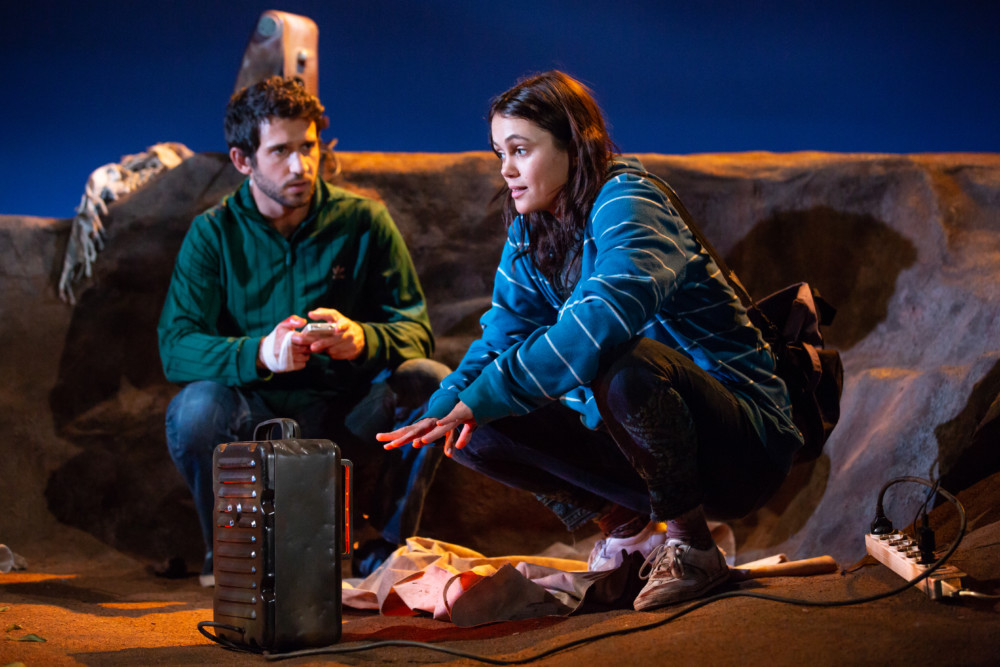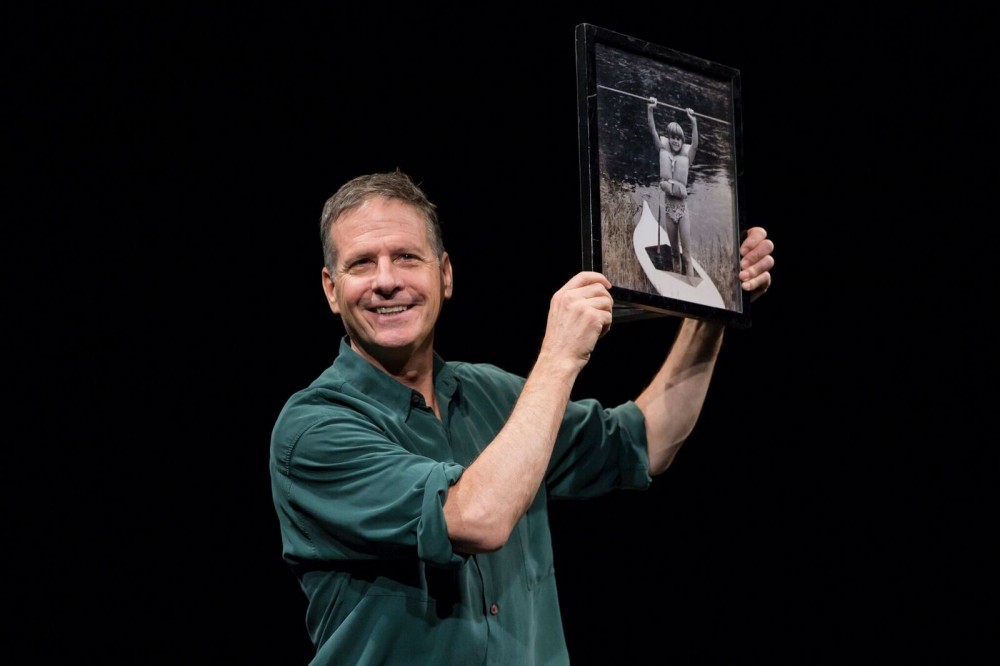by Carol Rocamora
“Hell hath no fury like a woman scorned,” as the quote goes – unless, of course, you’re in hell already.
And that’s where Yasmin, protagonist of the powerful new play Power Strip, finds herself. Sylvia Khoury’s searing, suspenseful drama is set in 2016 in a Syrian refugee camp on isle of Lesbos, Greece, a geographic bridge between the east and the west (and a location that has deeper meaning, as we later learn). This no-man’s (or no-woman’s) land is Yasmin’s temporary home, having fled from Damascus with her father.
Yasmin (Dina Shihabi) bears resemblance to another scorned noblewoman from that part of the world – namely, Medea, whom we’ll also see this season. Like Medea, Yasmin is well-born, and like Medea, she has super-powers – in Yasmin’s case, a wealthy family, beauty, education and the passionate aspiration to become a doctor. But, like Medea, Yasmin’s undoing is the love of a man who ultimately betrays her – in Yasmin’s case, her fiancé Peter (Ali Lopez-Sohaili), a young Damascan, equally well-born and educated. Their future together is bright, until Syrian civil war breaks out, and Yasmin is raped by three men who are out to get her rebellious brother. As a result, Peter’s father forbids his son to marry Yasmin, now a disgraced woman in their patriarchal culture. Peter complies.
It’s a “you can run but you cannot hide from your past” story. When we first meet Yasmin, she’s escaped war-torn Syria with her father, and is now living alone in an olive grove on the edge of a refugee camp. Why is she hiding? Because she is in possession of a precious commodity – namely, a “power strip,” from which she can charge her cell phone and plug in an electric heater she’s stolen, to warm her from the harsh cold. Desperate, she’s saving up enough money to bribe her way out of the camp and emigrate (via the underground) to Munich, Germany, where she can begin a new life, free from the oppression of a patriarchal society.
It’s the secret manner in which Yasmin earns this money (no spoiler) that puts her in double jeopardy, and threatens the love of a new man (Khaled, played by Darius Homayoun) she meets in the camp, who wants to marry her.
For the most part of this bracing 90-minute play, I thought the theme was the trauma of immigration. But there’s a broader, powerful feminist statement that’s being made, ultimately, relating to the metaphor of what a “power strip” means to a woman, and how dangerous and self-destructive that power can become.
The setting – a timeless wasteland reminiscent of Waiting for Godot – is designed by Arnulfo Maldonado (lighting by Jen Schriever), and Tyne Rafaeli directs a tight, talented ensemble with skill and sensitivity. As Yasmin, the beautiful, beleaguered Dina Shihabi is onstage every riveting moment of this taut drama, and her steely determination is admirable. As Khalid and Peter, men trapped by their inherited patriarchal values, Darius Homayoun and Ali Lopez-Sohaili both show a helplessness that is (ironically) touching. As Abdullah, a stranger, Peter Ganim bestows upon Yasmin the single act of kindness in this heartless story. His mysterious identity is almost mythical – just like the surroundings.
Of French and Lebanese descent, Khoury is an exciting young writer with a broad world view and something urgent to say about women and cultural oppression. Hers is a new and vital voice, worthy of hearing.
Photos: Jeremy Daniel
Power Strip, by Sylvia Khoury, directed by Tyne Rafaeli, at LCT 3, Lincoln Center, through November 17 – www.lct.org























